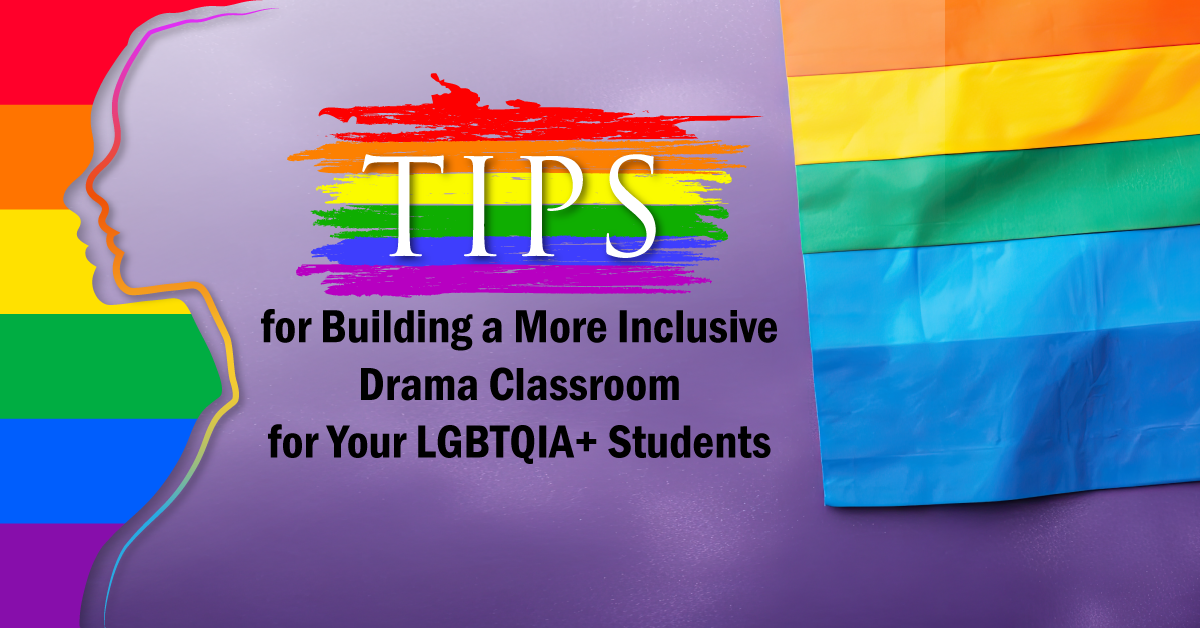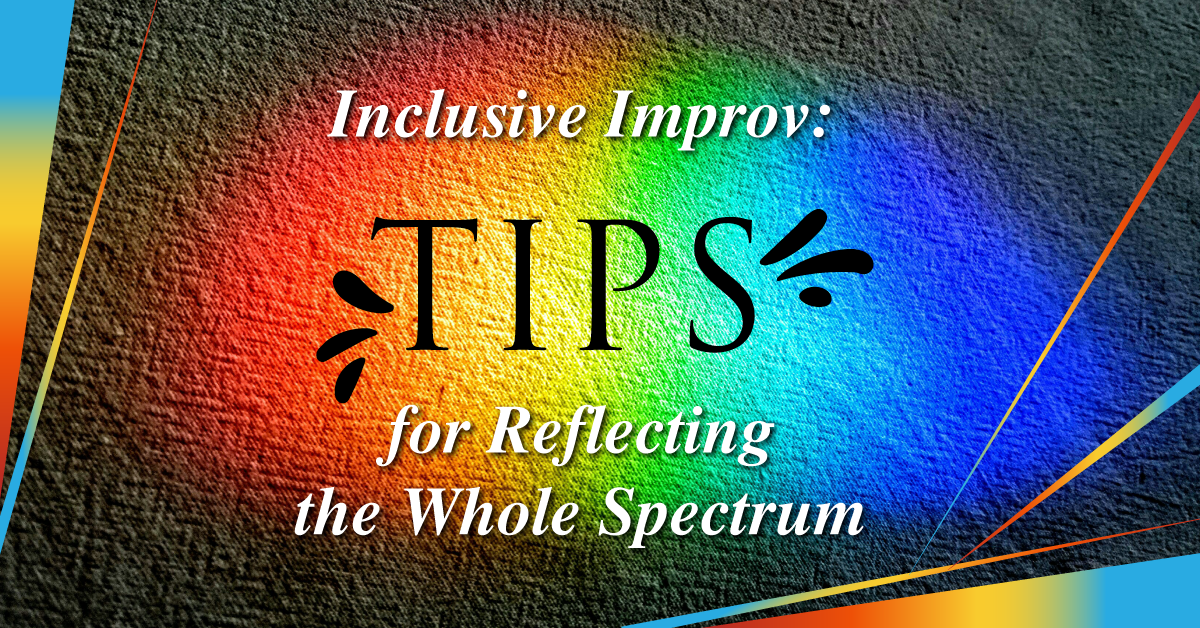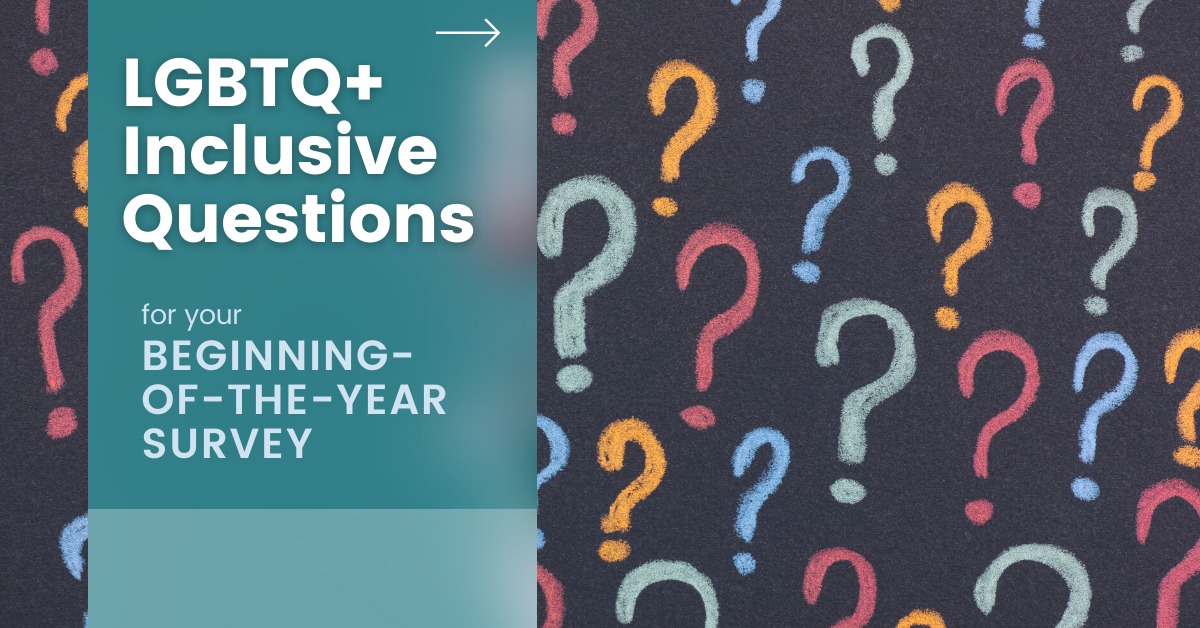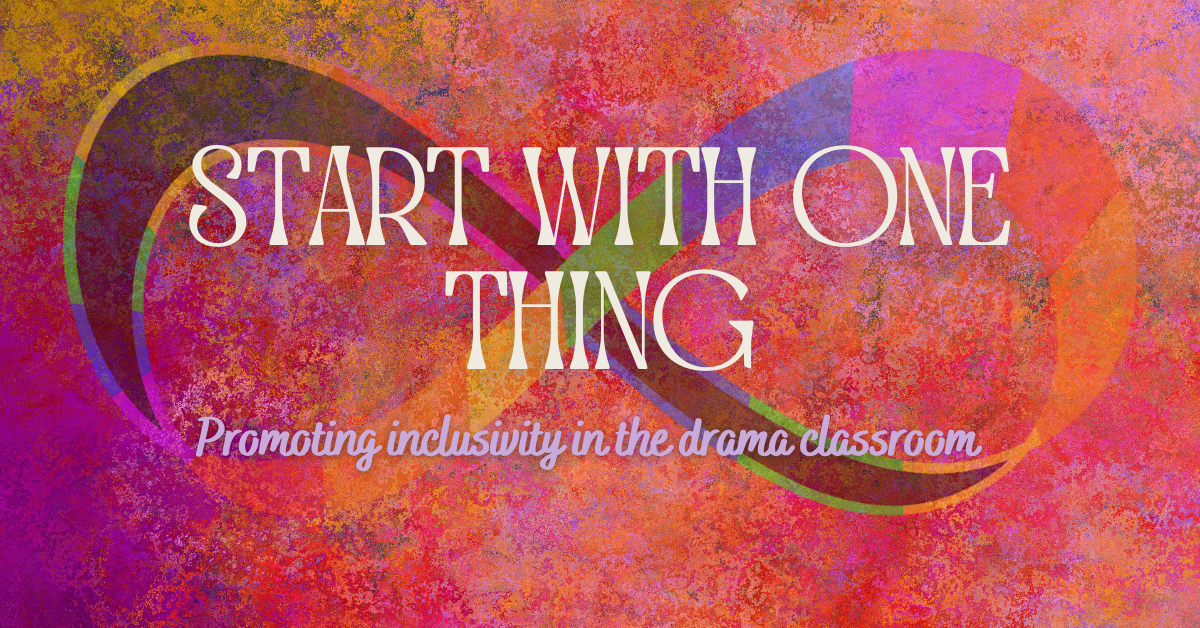Tips for Building a More Inclusive Drama Classroom for Your LGBTQIA+ Students
Inclusion is about what happens every day in your classroom. It goes beyond visibility (which is still incredibly important!). Your choices, your leadership, the materials you share with the class, and more shape the atmosphere of your drama class. When your LGBTQIA+ students trust that you see them fully, the drama classroom becomes more than a performance space; it becomes a safe haven for self-expression.
Here are some simple, effective tips for creating an emotionally safe and affirming space where LGBTQIA+ students feel seen, respected, and celebrated:
Set clear, shared classroom agreements around respect, listening, and boundaries for all students.
Model curiosity and care when a student’s name or identity shifts. For example: “Thanks for letting me know. Want me to update my notes?” Here are some other inclusive questions you might ask.
Include opt-out language in emotionally intense activities, such as, “It’s okay to step back from this scene today” or “Let’s take a break and come back to this exercise when you’re feeling up to it.” Try the improv exercise “Yes, And… and No, But…” as an example of opting out of a particular topic but still participating in the exercise.
Use inclusive language. Refer to groups of students as “actors,” “performers,” “ensemble,” “friends,” “students,” “everyone,” or “folks/folx,” rather than “ladies and gentlemen” or “boys and girls.” Use everyone’s pronouns correctly.
Practice correcting gently but right away when mistakes happen, yours included. “Jason’s pronouns are they/them, Mr. Brown.” “Sorry Jason. Thank you El for the reminder.” Acknowledge your mistake, correct it, and move on. Focus on kindness over shame. Don’t get upset and make the student have to console you for your mistake.
Be affirming without making students feel like spokespeople for their identity.
Acknowledge LGBTQIA+ history months, playwrights, and trailblazers as part of your curriculum.
Seek out plays with queer representation, especially those that centre joy and complexity, not just trauma.
Make inclusivity the norm in classroom exercises and games. Let students help reimagine stories in new and different ways. Improvise a scene where Juliet has two moms. In a dance scene in your school’s musical, allow students to dance with the partner of their choice, regardless of gender identity. Offer monologue and scene choices that include characters of all genders and orientations.
What are some tips and techniques that you use to create a safe, inclusive drama classroom? Let us know on Facebook or Instagram.



